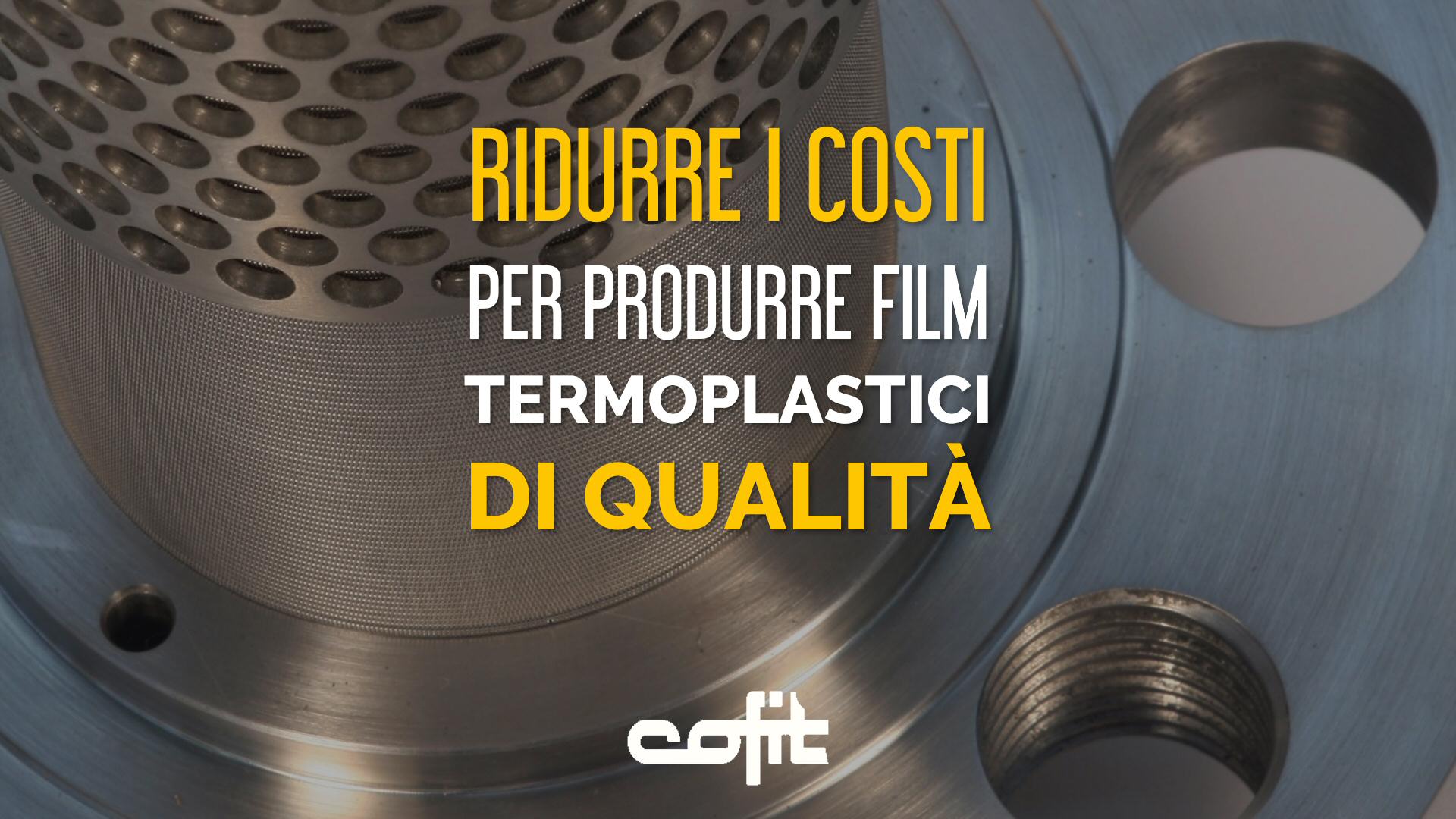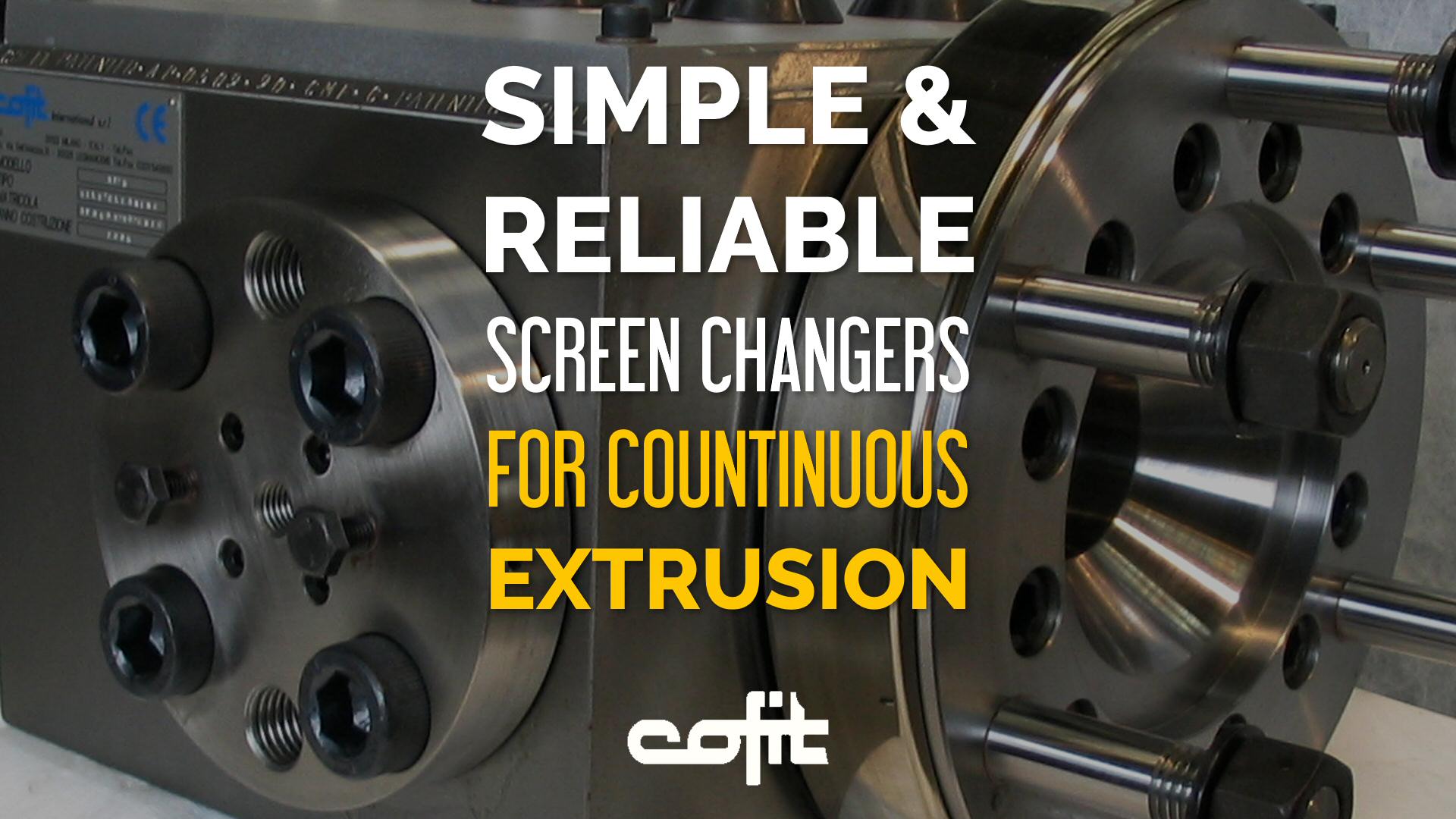How to manufacture high-purity thermoplastic film by extrusion with an eye on BOPP and BOPET cast film? How to select the right screen changer?
(Questo articolo è disponibile in italiano | This post is available in italian language)
If your plastic extrusion system processes BOPP and BOPET and is intended for manufacturing cast film and, in general, high-purity thermoplastic film, here are some key tips and guidelines for the selection of the right screen changer.
BOPP and BOPET suitable for the production of thermoplastic film
Cast film and, in general, thermoplastic film production by plastic extrusion requires raw polymers to be selected according to the characteristics required for the relevant end application. Currently, the polymers most widely used in high-quality productions are BOPP, BOPET, as well as PE, PP, ABS, PET, Nylon, PA, and PS.
Besides the selection of a proper polymer mix, an accurate filtration of impurities is a determining factor for the production of high-quality thermoplastic applications. An adequate impurity filtration along the extrusion process enables the production of thermoplastic film characterized by outstanding purity, which in turn enables the production of high valued end applications, especially if intended for food, medical and optical sectors.
BOPP and BOPET filtering by continuous screen changers
Besides a proper selection of the right polymers, the production of high-quality thermoplastic film requires the production system to be equipped with a key component, i.e. a high-filtering continuous screen changer.
- A continuous screen changer is required because it offers an uninterrupted thermoplastic film production process.
- A self-cleaning screen changer is required because impurity removing steps are carried out without any machine downtimes, which would affect the overall system efficiency.
- Most of all, the selected screen changer shall carry out a notably accurate and efficient screening, the goal being to remove any raw material impurities thoroughly and ensure an indubitable and constant quality level along the entire production cycle.
Optimizing thermoplastic film extrusion system
What are the 4 key actions to optimize your BOPP and BOPET thermoplastic and cast film extrusion system?
- Rely on high- quality virgin raw materials.
- At the extrusion stage, include an impurity screening system with a screen changer that can retain and remove impurities as small as 10 microns and offer significant pressure level resistance.
- Select a screen changer requiring low investments at start-up.
- Select a screen changer offering low or zeroed maintenance costs: no motors or hydraulic components, being virtually indestructible, requiring no stops for maintenance or cleaning interventions or process interruptions.
Continuous screen changer for heavy filtering workloads
The production of high quality and high purity thermoplastic film requires the high-filtering screen changer to be designed and set up with an eye on sturdiness and operational simplicity. In this way, the screen changer can withstand heavy filtering workloads, without any process interruptions, failures or maintenance and cleaning downtimes or any other manual interventions.
Screen changers from Cofit AP series
Cofit has been manufacturing high-filtering continuous and self-cleaning screen changers for over 50 years. AP screen changers has been specifically designed, manufactured, and tested for high-purity plastic film extrusion, in particular for cast film and blown film extrusion, made from the majority of polymers available on the market as well as BOPP and BOPET.
The AP series screen changers by Cofit are designed to perform demanding continuous screening of virgin and recycled polymer mixes. Cofit AP screen changers offer filtering levels exceeding 10 microns, which are suitable for food, optical, and medical applications.
Moreover, Cofit AP screen changers are amazingly sturdy as they are designed to perform demanding continuous screening, uninterruptedly:
- No motors, pneumatic or hydraulic components or control or hydraulic units, often subject to failures or tear and wear and affecting overall machinery operating cycle
- Over 500-bar pressure resistance
- Minimized maintenance
- Low investments at start-up
- Low management costs
- Extended life cycle when compared to other screen changers offering similar characteristics and efficiency.
Contact us
Cofit means research, engineering, manufacturing, and distribution of continuous screen changers, either automatic or manual, suitable for the most varied industrial applications and perfect for screening the majority of extruded plastic materials. Contact us to discuss how to manufacture high-quality thermoplastic film and optimize your plastic extrusion system, equipping it with an efficient continuous screen changer involving low investments.








